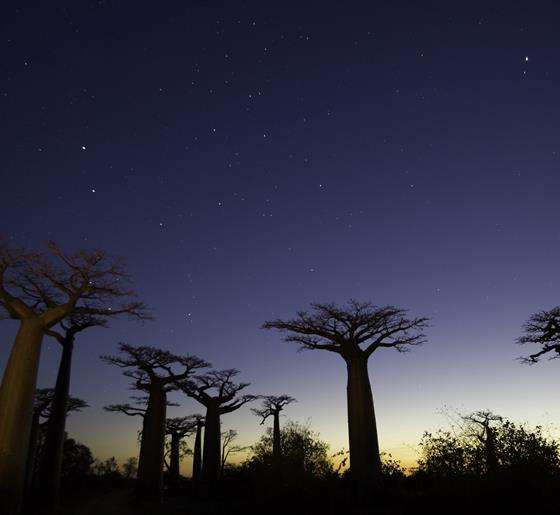Empowering the Malagasy people to fight against the illegal exploitation of Madagascar's natural resources

As the three-year "Preserving Madagascar's Natural Resources Program" (SCAPES) comes to a close, the challenge now rests with the Malagasy people to leverage new capacity to combat illegal exploitation of the island's natural resources.
The SCAPES project, launched in 2013 with funding from the United States Agency for International Development (USAID), has been implemented by a consortium of four Non-Governmental Organizations (NGOs) in Madagascar: World Wildlife Fund (WWF), Wildlife Conservation Society (WCS), Conservation International (CI) and TRAFFIC, in close collaboration with civil society and government. Activities have focused on addressing the trafficking of precious woods and reptiles from Madagascar's Atsinanana North humid forests as well as training key actors to monitor, raise awareness of, and combat timber and wildlife trafficking at the regional and national levels. This process has engaged diverse members of society, from community-based organizations to timber traders, journalists, rangers, law enforcement authorities, courts, and government Ministries.
Under the SCAPES project, WWF, WCS, CI and TRAFFIC have worked with partners to deliver training on timber and reptile identification, to develop legal frameworks and to provide Civil Society Organizations (CSOs) and investigative journalists with the skills needed to report on illegal practices. As a result, a new National Coalition for Environmental Advocacy (CNPE), and three regional-level CSO coalitions (LAMPOGNO, COCAZ, TMTI) are now highly involved in identifying, monitoring and denouncing crimes. In one case, just three weeks after a training session, 45 planks declared to be palissander were seized by the government.
Community rangers and protected area staff have also been trained in the use of law enforcement monitoring techniques using SMART conservation software, so that information on infractions can be rapidly collected and transmitted to protected area managers for action. As a result, better trade monitoring and protected area monitoring techniques are to be adopted nationwide.
Madagascar in the illegal wildlife trade spotlight
Madagascar is in the illegal wildlife trade spotlight. At the next meeting of the Convention on International Trade of Endangered Species (CITES) starting on the 24th of September in Johannesburg (South Africa), the CITES Secretariat will again be highlighting the need for Madagascar to commit to enforcing stricter control and legal sanctions against illegal trade, especially regarding the ebony and rosewood trade.
The SCAPES project has contributed to Madagascar's ability to meet its CITES commitments. With the support of SCAPES, a precious timber Biodiversity Management Plan (BMP) was prepared and adopted by the Ministry of Environment, Ecology and Forests.
Government actions and engagement have been crucial to combating illegal exploitation. Civil society and economic operators also have crucial roles to play in combatting the problem. Raising awareness about the challenges facing Madagascar and the possible solutions to trafficking are vital to ensuring that natural resources remain for future generations.
Provided by Conservation International


















